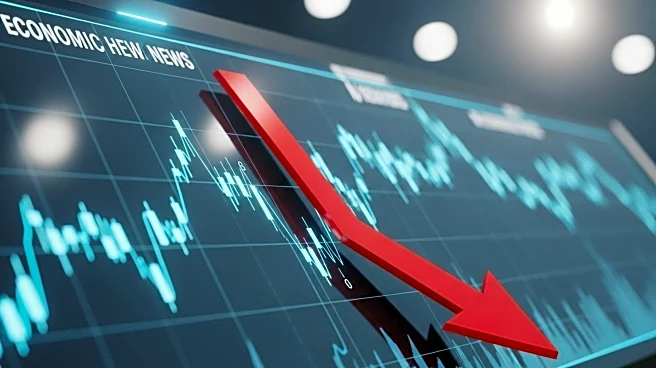What is the story about?
What's Happening?
Asian stock markets experienced declines after President Trump announced plans to impose new tariffs, including a 100% import tax on pharmaceutical drugs starting October 1. The announcement, made via social media, cited national security concerns and the impact of foreign-made goods on domestic industries. The tariffs will affect various sectors, including furniture, cabinetry, and heavy trucks. The news led to a drop in U.S. futures and a rise in oil prices. Major Asian indexes, such as Japan's Nikkei 225 and South Korea's Kospi, saw significant losses, reflecting concerns over prolonged tariff negotiations and their potential impact on global trade.
Why It's Important?
The imposition of new tariffs by President Trump could have significant implications for international trade relations and economic stability. Tariffs on pharmaceutical drugs and other goods may lead to increased costs for consumers and businesses, potentially affecting supply chains and market dynamics. The move could also strain relations with trading partners and lead to retaliatory measures, further complicating global trade. For Asian markets, the tariffs add uncertainty to an already volatile economic environment, impacting investor confidence and market performance.
What's Next?
The announcement of new tariffs is likely to prompt reactions from affected industries and international trade partners. Companies in the pharmaceutical and manufacturing sectors may seek to negotiate or challenge the tariffs, while governments could explore diplomatic or legal avenues to address the trade barriers. The situation may also influence upcoming trade talks and negotiations, as stakeholders assess the broader impact of the tariffs on economic growth and international relations.















